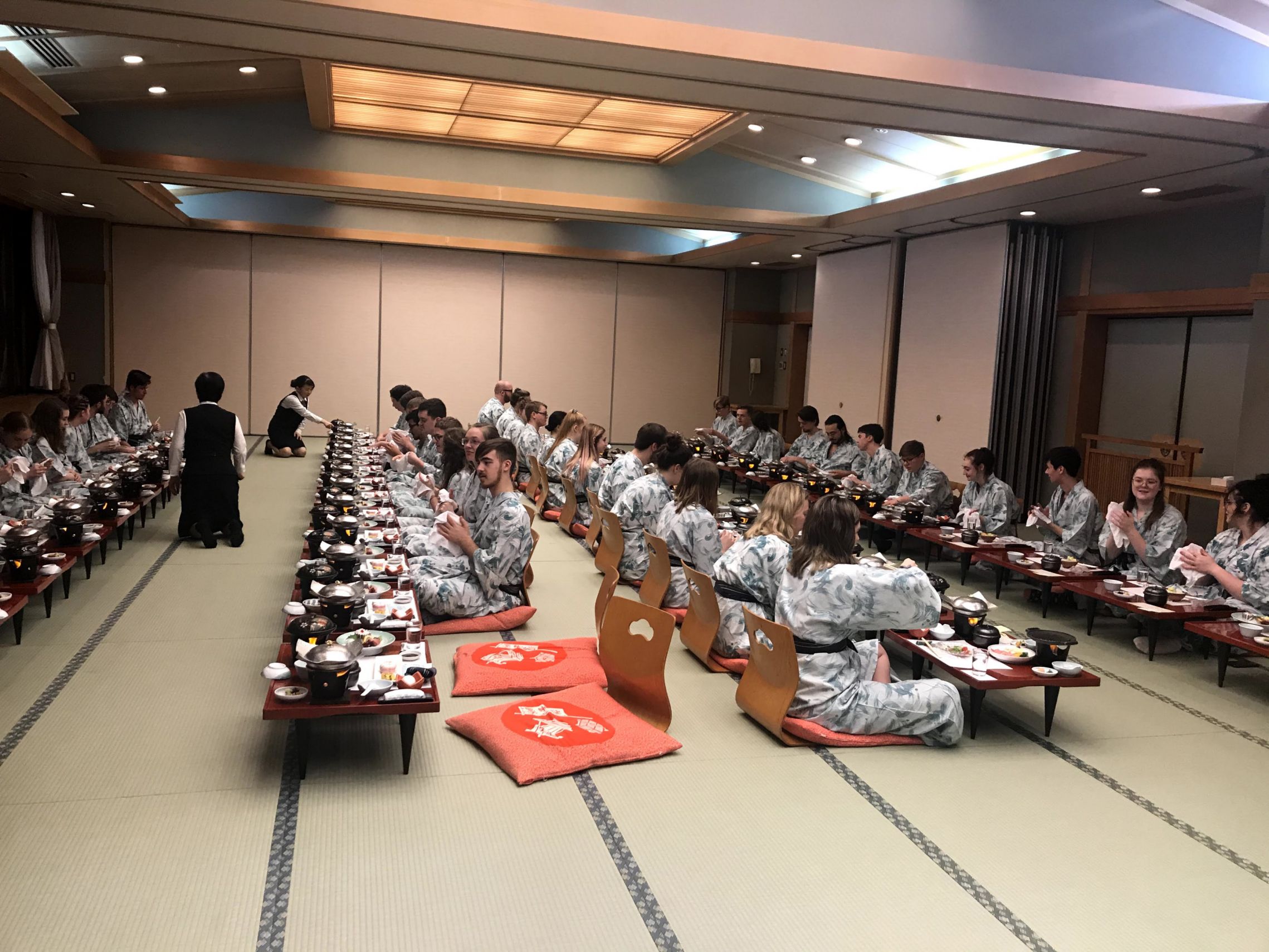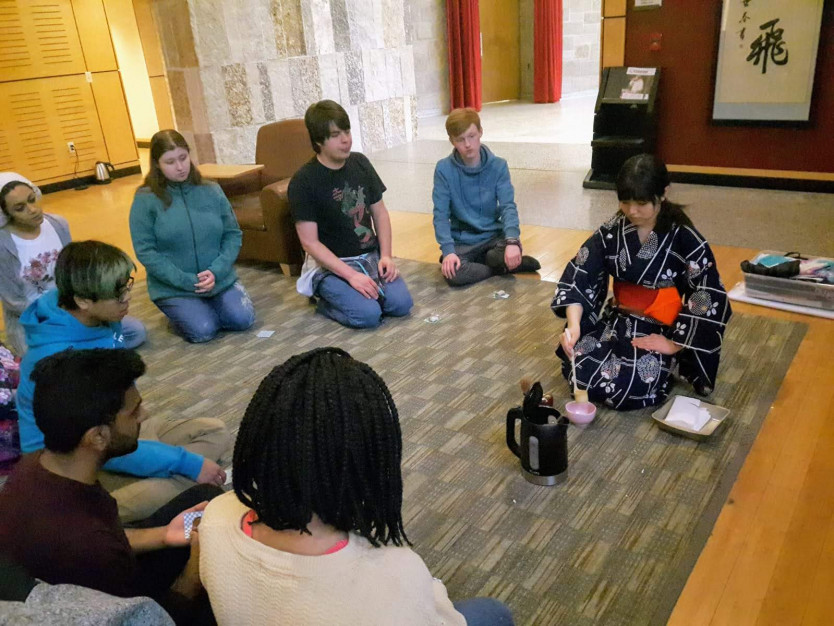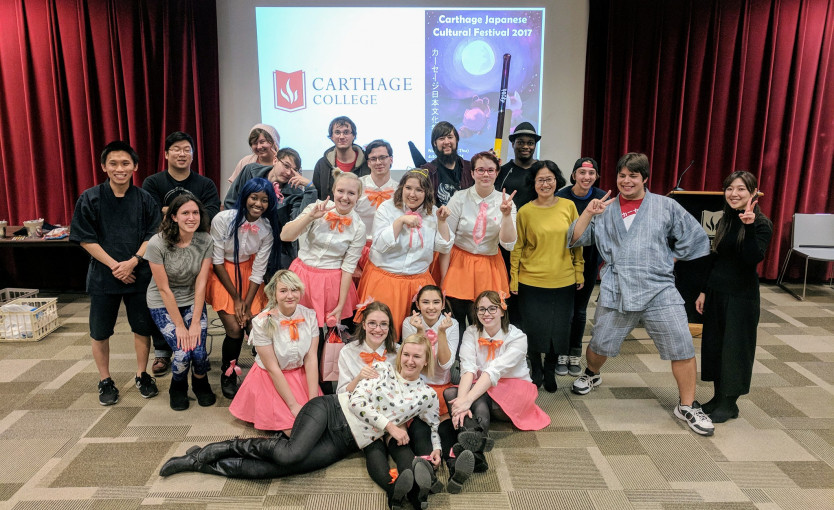Japanese
You’ll be immersed in Japanese culture and language from the first day of your first Japanese course. Courses stretch beyond vocabulary and grammar to explore literature, architecture, art, politics, film, economics, and everyday life, so you’ll develop a critical understanding of Japanese culture and language.
The core of the Carthage Japanese program is the four-year language curriculum. The goal of the Japanese program is to help students develop proficiency in Japanese in a socio-cultural context. Students not only gain fluency in reading, writing, and speaking Japanese, but they also acquire a deep understanding of Japanese people and culture.
Many students combine Japanese with a major or minor in another field, allowing them to combine their interests and prepare for various futures — even some they might not anticipate.
Courses You’ll Take
All classes in the major are taught in Japanese. Here’s a sampling of required and elective offerings:
RETROACTIVE CREDITS
If you test into a course and then earn a “C” or better, you can earn up to 12 free retroactive credits. That’s three times more than you’ll get from any AP or college-level class that offers college credit!
Beyond the classroom
Cultural Events
On campus, faculty periodically offer Japanese cultural workshops on kimonos, calligraphy, sushi, and tea ceremonies. The annual Bunkasai Cultural Festival lets students showcase their Japanese speeches, dances, songs, skits, and martial arts. Off campus, the Japanese Club organizes regular field trips.
Study Abroad
Besides the required semester-long immersion (typically at one of Carthage’s two exchange partner universities), faculty periodically lead short-term study tours to Japan and other parts of East Asia during the J-Term.
Popular minors & second majors
After Carthage
Studying Japanese at Carthage leads to jobs in business, marketing, healthcare, computer science, recruiting, teaching, art, and more. Carthage’s alumni work in a variety of settings and hold positions with employers such as:
- Chief chemist at Racine Industries, Inc.
- Sales coordinator at Nippon Steel Trading Americas, Inc.
- Senior consultant in the software industry in Tokyo
- English teaching assistant under the JET program in Saitama-ken
- Japan English lecturer at NOVA Holdings Co. Ltd. in Tokyo
- Senior trade compliance analyst at Life Fitness
- Children’s book author and illustrator



